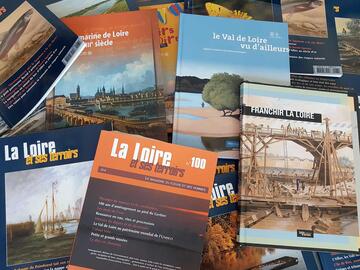
06/03/2025
[Fr] Décès de Philippe Auclerc
C'est avec tristesse que nous avons appris aujourd'hui le décès de Philippe Auclerc, co-fondateur de la maison d'édition "Loire et terroirs" et rédacteur...
Published on 04 March 2015 - Updated 07 April 2015
Cet article date d'il y a plus de 10 ans
On Wednesday 8 April 2015 in Tours, Mission Val de Loire will be organising this study day for all local authorities, State representatives and associations in the Loire Valley who are involved in shaping its future. Mission Val de Loire intends for it to be a wide-open session that encourages debate and discussion, and in this way make its own contribution to the general discussions on the matter.
The boundaries of the Regions have been redrawn, and remain unchanged for the Pays de la Loire and Centre-Val de Loire. The Loire stretch will not be an administrative unit, as it has never been. But this reform, which also includes a change in the distribution of remits, prompts questions over its reality, the challenges it faces and the projects that may be developed there.
Along the middle section of the Loire, from the Orléans region to Nantes, the Loire stretch can primarily be considered a coherent unit in terms of physical geography and historical fate as well – "a natural region" (The estuary Loire is nonetheless distinct because of a double affiliation). But this is not the case in terms of use or socioeconomic reality – even if a range of initiatives have strengthened the formative dimension of the river corridor. Beyond its historical capacity as a transport link – by river, rail and then road – the Loire was one of the first river basins to have a concerted, integrated management policy developed which factors in not just how the water and flood risk are managed but also the quality of the environment: the "Plan Loire grandeur nature", which has now been updated. The listing of the Loire Valley from Sully-sur-Loire to Chalonnes-sur-Loire as a World Heritage is the fruit of this policy, which has helped to provide meaning and reason through rediscovery of this river landscape it highlights, and to demonstrate shared ambitions with a management plan that has been validated by the site's local authorities. Tourism, and particularly the Loire à vélo cycle trail, is also one of the project components.
The study day therefore sets out to paint a picture of this Loire site, which takes on board its geography and how it is used and enhanced over time, before giving thought to its future prospects: what coherences, challenges and projects for such a territory? Initiatives concerning other major European rivers and their territories – the Po, Vistula and Rhine – will help to shed light on our discussions.
Registration is free, with a limited number of places.
Online registration compulsory.